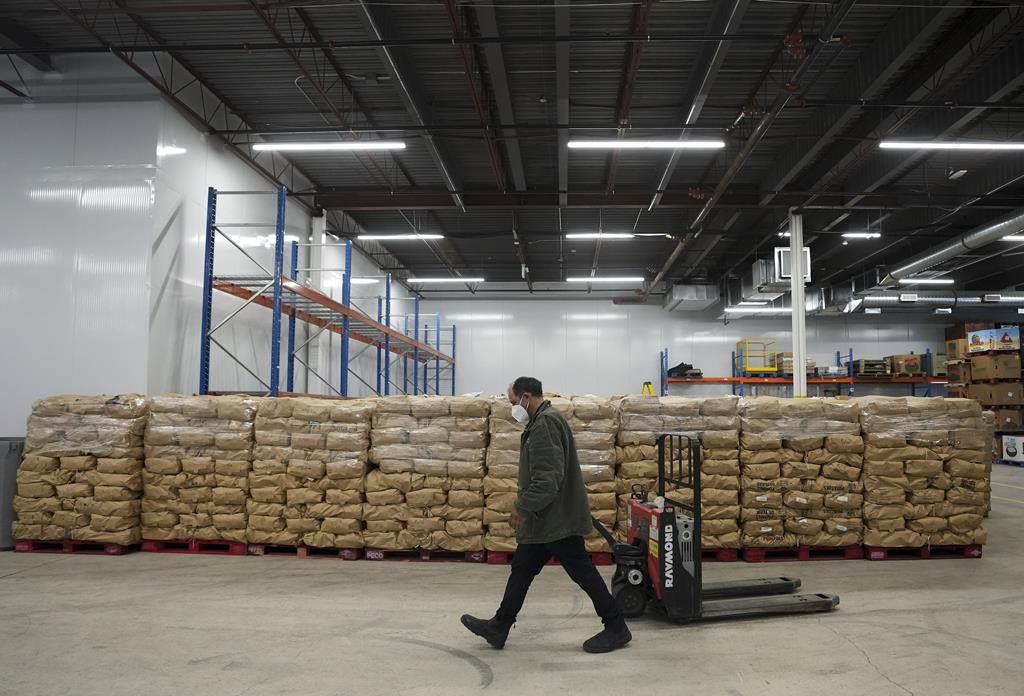TORONTO — Clients at a food bank in north Toronto have recently been going home with baskets of potatoes from Prince Edward Island as truckloads of the vegetable caught up in an export ban have been making their way across the country.
The spuds are being sent to food relief organizations in an effort to use the crop, which has been prevented from travelling to its biggest export market due to the discovery of potato wart, a parasite that poses no risk to human health but disfigures the vegetables.
The federal government banned the export of Island potatoes to the United States in November and is now covering the cost of buying and transporting the potatoes to food banks.
At the Rhema Christian Ministries food bank, staff say the shipments are coming at a good time.
“Definitely the potatoes were a welcome commodity. And people were asking for them,” food bank co-ordinator Grace Williams said in an interview.
The food bank has seen a sharp increase in the number of residents it serves since March 2020, when the pandemic hit, she said.
The potatoes help fill a need for produce, Williams said, adding that she was glad the initiative was supporting Canadian farms as well.
“It is wonderful that we are able to utilize local produce right in our community, within our country,” she said.
The P.E.I. Potato Board said the potato wart issue and the subsequent export ban saw 225 million pounds of potatoes destroyed in that province in the last two months. Potato wart, which spreads through the movement of infected potatoes, soil and farm equipment, leaves the potatoes disfigured and can greatly decrease crop yields.
Out of the crop that could be salvaged, five million pounds has so far been loaded onto tractor-trailers, travelling to organizations feeding and distributing food to communities across Canada, said Kendra Mills, marketing director at the board.
Playing a role in filling the need for produce at food relief organizations has been the “bright light” during a tough time, she said.
“This is the best part of the absolutely horrendous situation,” said Mills. “Feeding hungry people is very important and that’s what farmers do at the very, very core … So at the end of the day, that’s a positive thing.”
Second Harvest, a charity based in Toronto, and Food Banks Canada are distributing the potatoes through their national networks.
Lori Nikkel, CEO of Second Harvest, said her organization has received a steady supply of truckloads since the start of January and has so far shipped more than 60 of the 200 loads expected from P.E.I.
Although the potatoes have a limited shelf life and the crop must be circulated by the end of June, Nikkel said they are being well-received.
“It’s really nice to have a steady supply of a product that’s really hearty and versatile,” she said. “You can do a lot of things with a potato, which is really important.”
This report by The Canadian Press was first published March 14, 2022.
_____
This story was produced with the financial assistance of the Social Sciences and Humanities Research Council, which is funding a project by Carleton University’s School of Journalism and The Canadian Press.



